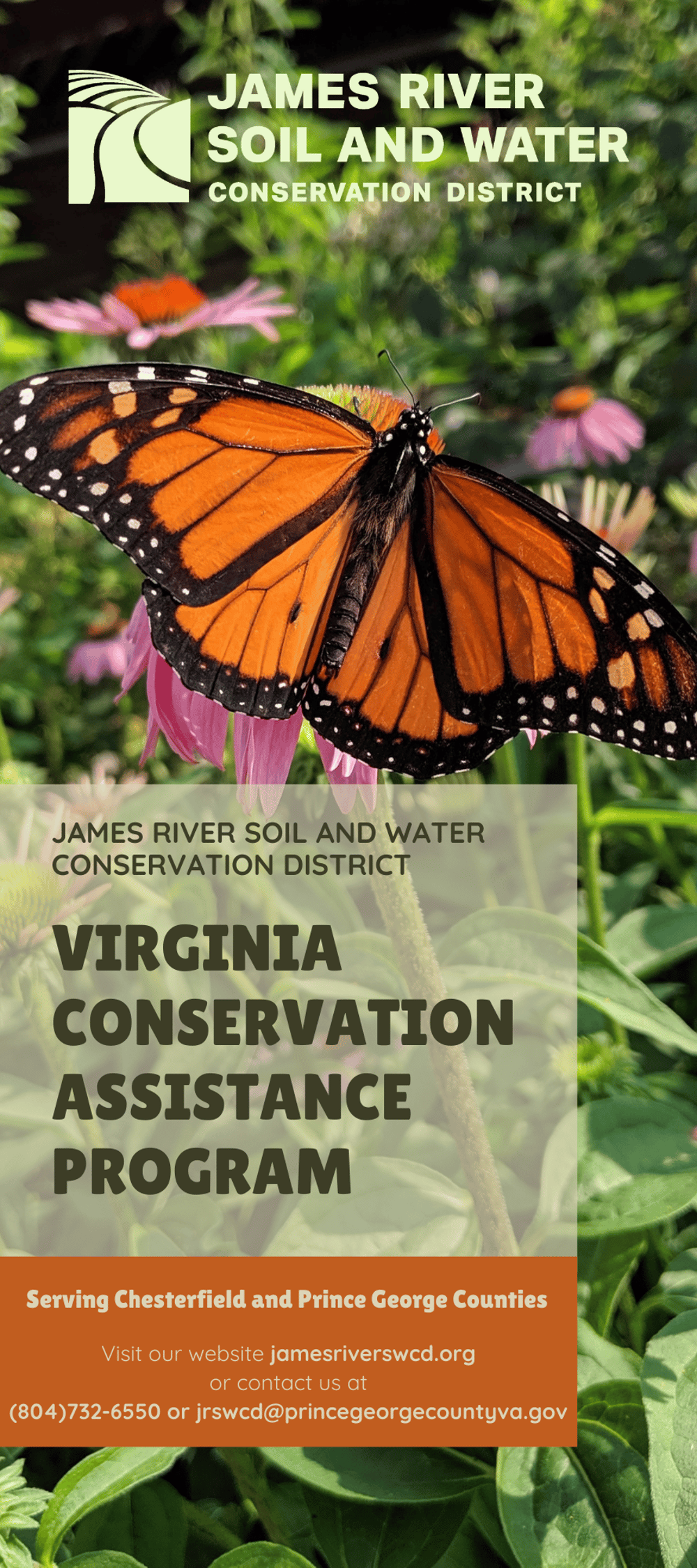
Conservation for Home and Business Owners
Support is provided to landowners in urban, suburban, and rural areas to control erosion and runoff on non-agricultural properties through the Virginia Conservation Assistance Program (VCAP). Properly managed stormwater can help recharge groundwater and protect land and streams from erosion. The VCAP program has twelve practices available to help landowners understand and manage the unique aspects of stormwater runoff on their property. Cost-share is provided at either a flat rate per practice or a percentage of the total project costs. The VCAP program not only supports our community financially but includes invaluable technical assistance from local conservation professionals.
The specifications of best management practices are constantly evolving with new information and more experience. The specifications and standards will be updated as more research and information are gathered. VCAP practices can be installed in small-scale settings such as existing residences and small businesses.
VCAP is a “retro-fit” program, meaning that all qualifying properties must be three years post-construction. If you would like to learn more about the VCAP program or ways to implement conservation in your yard, please reach out to us.
VCAP is now on pause in the City of Richmond
The James River Soil and Water Conservation District is pausing the implementation of the VCAP program in Richmond while we seek to secure stable funding.
We Help You Make a Difference
Why do Virginia’s waters need improving? Nonpoint source pollution is the leading cause of water quality problems. Rainfall or snowmelt from suburban lawns, golf courses, and paved surfaces picks up and carries away natural and human-made pollutants depositing them into lakes, rivers, wetlands, coastal waters, and ground waters.
Roads, parking lots, sidewalks, homes, and offices replace natural landscapes. Rainfall that once soaked into vegetated ground now becomes stormwater runoff, which flows directly into local waterways.
As more natural landscapes are converted to impermeable surfaces or managed turf, stormwater moves across them, carrying pollutants such as sediment and nutrients to vulnerable streams and rivers. Stormdrains you see on the street do not provide any sort of water filtration.
Virginia’s Watershed Implementation Plan (WIP) for the Chesapeake Bay identifies that urban/suburban runoff is contributing to impairment, and efforts to retroactively address stormwater runoff from existing impervious surfaces is a priority. VCAP is an opportunity to help you do your part to improve water quality.
We Can Help You
Restore problem areas
Control and minimize erosion
Conserve water within the landscape
Improve riparian buffer areas
Promote wildlife habitat
Re-vegetate bare slopes
Stabilize drainage ways
Treat stormwater runoff
Eligible Practices
Most practices are eligible for 80% cost-share and some practices provide a flat incentive payment up to the installation cost